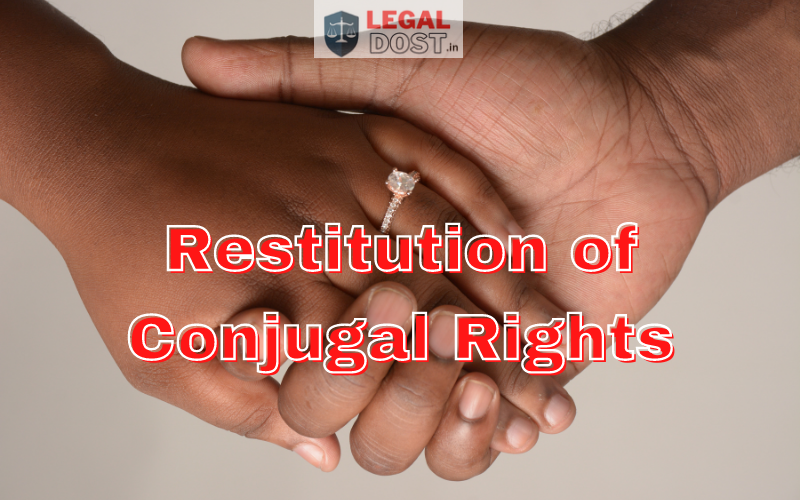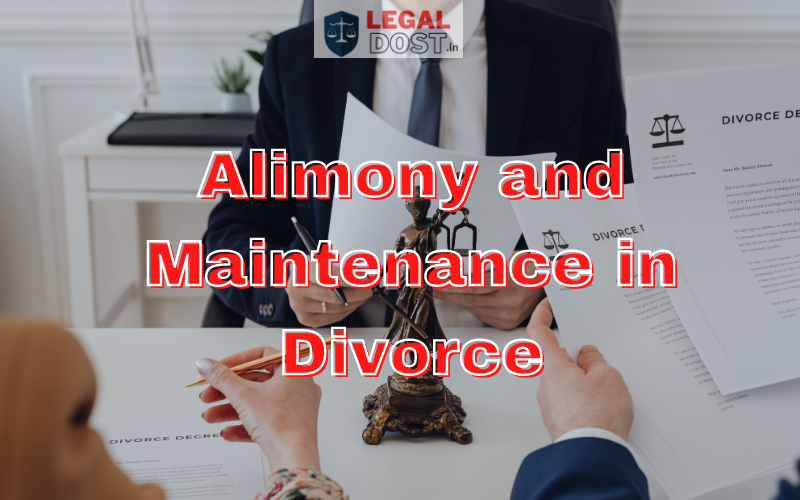In India, the concept of marriage is sacred and considered a lifetime commitment. However, when one spouse decides to leave the other without any reasonable cause, it can lead to a lot of stress and emotional turmoil for the abandoned spouse. This is where the concept of Restitution of Conjugal Rights comes into play in the legal system.
What is the Restitution of Conjugal Rights?
Restitution of Conjugal Rights is a legal remedy provided under the Hindu Marriage Act, 1955 and the Special Marriage Act, 1954 to help couples reunite and live together as husband and wife. It is a civil remedy that is granted by the courts when one spouse has left the other without any reasonable cause and refuses to return to the matrimonial home.
The main objective of this legal remedy is to restore the conjugal relationship between the spouses and to prevent the breakup of the marriage. It is a way to enforce the legal duty of one spouse to cohabit with the other and to fulfill their marital obligations.
Who can file for Restitution of Conjugal Rights?
Either spouse, who has been abandoned by the other without any reasonable cause, can file for Restitution of Conjugal Rights. The spouse seeking the remedy must prove that the other spouse has left the matrimonial home without any reasonable cause and is unwilling to return.
The court will consider various factors, such as the duration of the separation, the reason for the separation, the financial and emotional dependency of the abandoned spouse, and the welfare of the children, before granting the remedy.
How to file for Restitution of Conjugal Rights?
To file for Restitution of Conjugal Rights, the abandoned spouse must approach the court and file a petition under the relevant Act (Hindu Marriage Act or Special Marriage Act). The petition must contain all the relevant details, such as the date of marriage, the cause of separation, the efforts made to resolve the differences, and the reasons for seeking the remedy.
The abandoned spouse must also serve a notice to the other spouse, informing them of the petition and giving them an opportunity to respond. The court will hear both sides and may ask for additional documents or evidence before deciding on the case.
What are the grounds for granting the Restitution of Conjugal Rights?
The courts will consider the following grounds before granting the Restitution of Conjugal Rights:
- If one spouse has abandoned the other without any reasonable cause
- If one spouse has treated the other with cruelty or has behaved in a way that makes it impossible for the other spouse to continue living with them
- If one spouse has contracted a second marriage without obtaining a divorce from the first spouse
- If one spouse has converted to another religion and refuses to cohabit with the other spouse
- The courts will also consider the welfare of the children and the financial and emotional dependency of the abandoned spouse before granting the remedy.
What are the consequences of refusing the Restitution of Conjugal Rights?
If the spouse who has been ordered to return to the matrimonial home refuses to do so, they may be held in contempt of court. The court may also impose a fine or imprisonment as a punishment for disobedience.
However, it is important to note that the Restitution of Conjugal Rights is not a mandatory remedy and the courts have the discretion to grant or deny the remedy based on the circumstances of the case.
What are the alternatives to the Restitution of Conjugal Rights?
If the court denies the remedy of Restitution of Conjugal Rights or if the parties are unable to resolve their differences, there are other legal remedies available to help resolve the situation. Some alternatives to the Restitution of Conjugal Rights include:
- Divorce: If the parties are unable to resolve their differences and are unable to live together, they may choose to file for divorce. The courts will consider various factors, such as the duration of the marriage, the conduct of the parties, and the welfare of the children, before granting a divorce.
- Separation: If the parties are unable to live together but do not want to get divorced, they may choose to live separately and resolve their issues through mutual understanding or mediation.
- Annulment: If the marriage is void or voidable (such as if it was entered into under duress or fraud), the parties may choose to seek an annulment, which legally declares the marriage null and void.
So finally, the Restitution of Conjugal Rights is a legal remedy provided under the Hindu Marriage Act and the Special Marriage Act to help couples reunite and live together as husband and wife. It is a way to enforce the legal duty of one spouse to cohabit with the other and fulfill their marital obligations. However, it is not a mandatory remedy and the courts have the discretion to grant or deny the remedy based on the circumstances of the case. If the remedy is denied or if the parties are unable to resolve their differences, there are other legal remedies available, such as divorce, separation, or annulment. It is important for couples to seek legal guidance and assistance to help resolve their issues and find a solution that works for them.
Bibhu Mishra is a prolific writer who has published many books spanning various genres. He is a legal enthusiast and an avid researcher of cutting-edge technology, diving into fascinating realms to bring captivating narratives to life.



